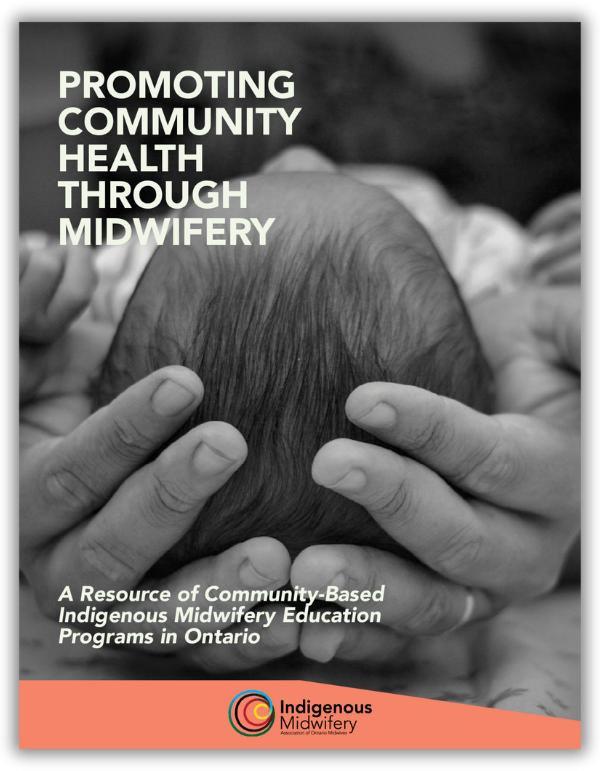Indigenous Midwifery

Indigenous midwifery
Indigenous midwifery is community-led care that upholds self-determination in pregnancy, birth and early parenting. Care is culturally grounded, relationship-based, ceremony-informed and provided as close to home as is safe and desired. Indigenous midwives are clinicians, educators and knowledge keepers who support whole-person health across the life cycle.
What Indigenous midwives do
Indigenous midwives provide primary clinical care in pregnancy, birth and postpartum; newborn care; sexual and reproductive health; advocacy; community education; and cultural support. They work within communities, collaborate with hospital partners when needed and support language, family and ceremony.
Ontario recognizes both Indigenous midwives working within the exemption clause and registered midwives as primary care providers funded to provide clinical care. In Ontario, Indigenous midwives can work within the exception clause in the Midwifery Act, 1991. The exception clause allows for a community to formally recognize those who hold the skills and knowledge to provide midwifery care as legal midwives.
Bringing birth home
Bringing birth home means returning pregnancy, birth and early parenting care to Indigenous communities and reducing routine evacuation for birth when safe and wanted. It keeps families and culture close, reduces harm and affirms rights-based care grounded in community governance and Indigenous knowledge.
Care options and access
- Choice of birthplace (home, community, hospital) based on client safety and preference
- Continuity of care from known providers before, during and after birth
- Support for language, ceremony and community teachings
- Coordinated care with local hospitals and specialists when needed
Click the link below for the location of Indigenous Midwifery programs in Ontario
Find an Indigenous MIDWIFE
Indigenous Midwifery Programs (IMPs)
Indigenous Midwifery Programs are community-governed services that provide culturally safe, community-centred reproductive, perinatal, sexual and infant health care for First Nations, Inuit and Métis families. Program budgets can include salaries, traditional services, equipment, home-birth kits and community engagement. Funding is provided through the Ontario Ministry of Health’s Indigenous Midwifery Program stream.
Promoting community health through midwifery: A resource of community-based Indigenous midwifery education programs in Ontario
This resource profiles four Indigenous Midwifery Programs with community-based education in Ontario. It outlines how each program is organized and is meant to inspire and assist communities interested in designing their own community-based Indigenous midwifery education programs. Profiles include:
- Kenhtè:ke Midwives (Tyendinaga Mohawk Territory)
- Kontiwiró:kwas Midwifery Training Program, Onkwehón:we Midwives Collective (Akwesasne Mohawk Nation)
- Odapinnaawaso Ikweyog, Dilico Anishinabek Family Care (Thunder Bay)
- Tsi Nón:we Ionnakerátsha/Ona:grahsta’ (Six Nations of the Grand River)
Download the Indigenous Midwifery Education Programs resource (PDF, 7.3MB)
Community readiness grants (CRGs)
For communities exploring an Indigenous Midwifery Program, CRGs fund the groundwork to support a future application. The AOM Indigenous Midwifery team can help communities assess readiness and shape proposals when calls are open.
Advancing Indigenous midwifery in Ontario
Alongside the National Council of Indigenous Midwives (NCIM), the AOM continues to advocate for changes to the health-care system that will eliminate barriers to practice and ensure that more Indigenous babies are born on their own land, with their births attended by Indigenous midwives.
This advocacy work has resulted in the Ministry of Health supporting Indigenous midwifery and culturally appropriate care by providing funding for Indigenous Midwifery Programs in the following communities:
- Dilico Family Health Team Clinic in Fort William First Nation – Dilico Family Health Team
- K’Tigaaning Midwives in Nipissing First Nation - K'Tigaaning Midwives
- Kenhté:ke Midwives in Tyendinaga Mohawk Territory - Kenhté:ke Midwives
- Onkwehon:we Midwives Collective within the Mohawk Nation at Akwesasne – Onkwehone:we Midwives Collective
- Shkagamik-Kwe Aboriginal Health Access Centre in Sudbury - Shkagamik-Kwe Health Centre
- Southwest Ontario Aboriginal Health Access Centre in London – SOAHAC
- North Channel Indigenous Midwifery – Elliot Lake / North Shore North Channel Indigenous Midwifery
- Seventh Generation Midwives in Toronto – Seventh Generation Midwives
Indigenous (Exemption) midwives have been providing services at Six Nations Maternal and Child Centre since 1996 and are funded through the Aboriginal Healing and Wellness Strategy. Access information about available services here:
- Six Nations Maternal & Child Centre in Ohsweken - Tsi Non:we Ionnakeratstha Ona:grahstá 'The Place They Will Be Born'
Neepeeshowan Midwives has been operational since 2012 in the Cree community of Attawapiskat on the James Bay coast. Find out more about their services here:
- Neepeeshowan Midwives in Attawapiskat First Nation - Neepeeshowan Midwives
How the AOM Indigenous Midwifery team can help
The AOM Indigenous Midwifery team supports midwives and communities to bring birth home. The team advances funding and sustainability, provides member support, collaborates with Indigenous organizations, hosts gatherings and connects communities with resources.
Contact the Indigenous Midwifery team: indigenous.midwifery@aom.on.ca

